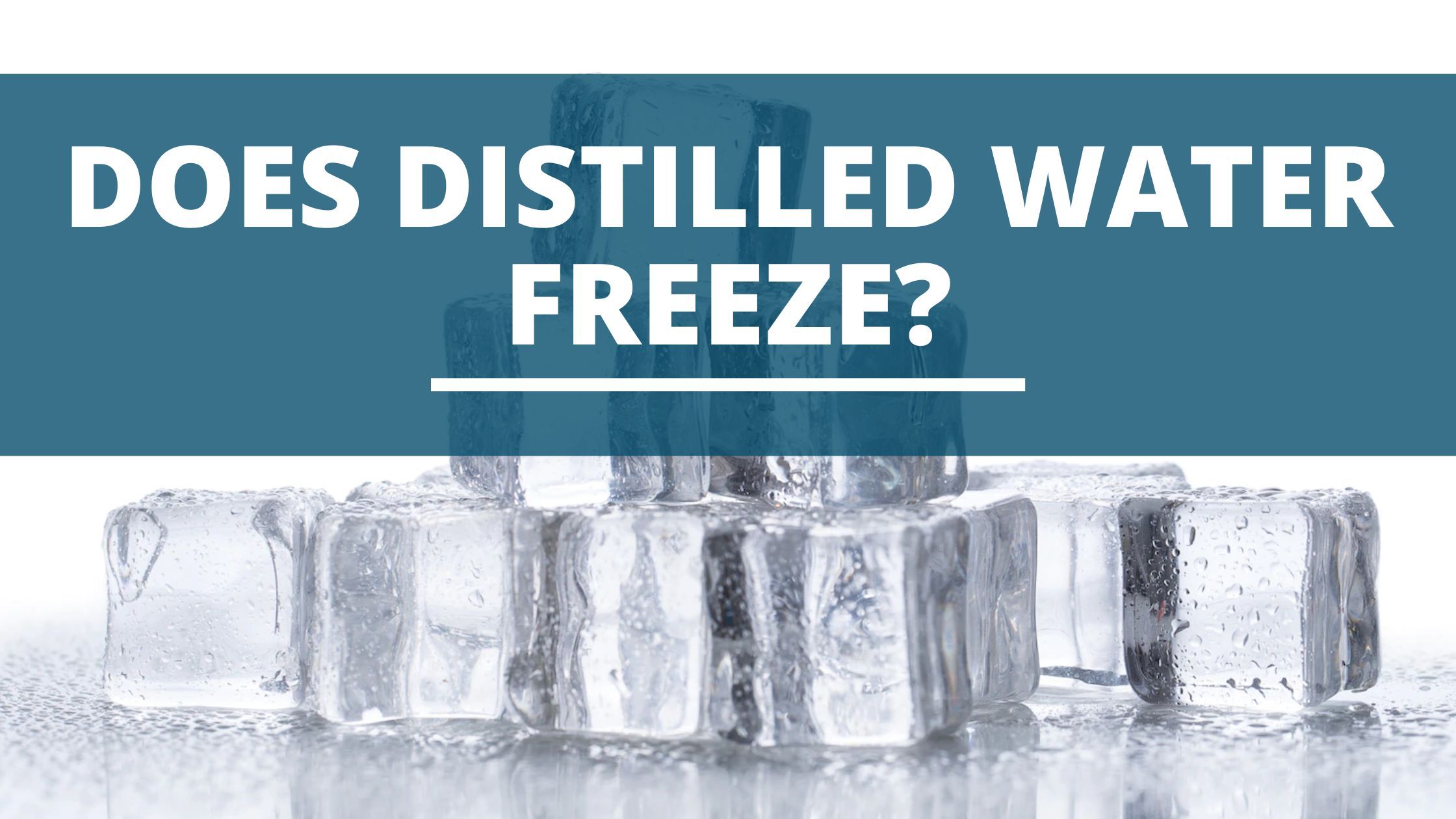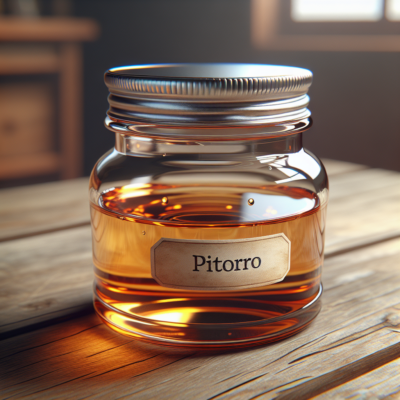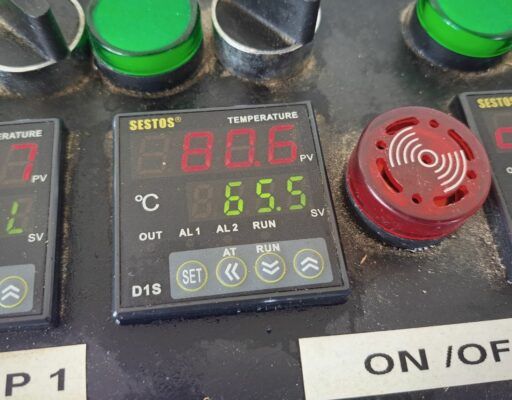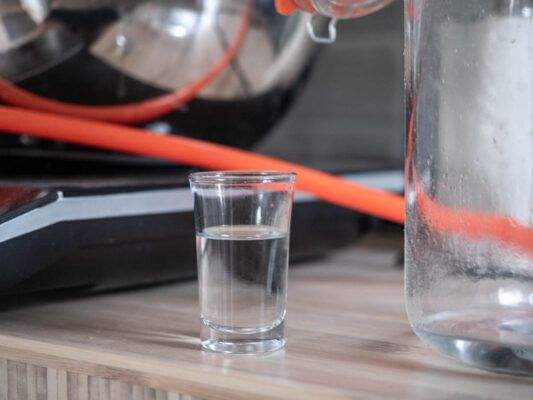Water
Does Distilled Water Freeze? (The Key Differences)
There are various ways to purify water. From distilling, deionizing, and reverse osmosis. Most of these methods treat the water you use at home. Distilling water is a common technique used commercially and it can be replicated at home.
Distilled water is water that’s steamed, condensed, and collected in sterile jars. This ensures an excellent level of purity, but does it freeze when there’s an absence of salts and minerals?
In this post, we’ll explore the properties of distilled water both in liquid and solid states.
Table of Contents
What Exactly Is Distilled Water?
Distilled water is water that has been purified through boiling. Though distilled water is widely used in place of tap water when purity is needed, there are other types of purified water on the market utilized for their cost-effective nature. Here’s an explanation of each of these.
Distilled Water
Distilled water is water that’s boiled into steam, condensed into a liquid, and collected in a separate container. Steaming leaves behind inorganic minerals, microbes, and heavy metals. It’s often used in:
- Lab tests.
- To clean medical apparatus.
- Cosmetics and pharmaceutical industries to prevent bacterial growth.
- When making baby formula.
- In cars to prevent eroding metals.
Tap Water
As the name implies, tap water is water that comes out of a faucet. It’s treated with liquid chlorine and other chemicals like fluorosilicic acid, calcium hydroxide, and aluminum sulfate. Depending on where you live – and the plumbing system through which water travels, your water might contain contaminants like lead, nitrates, and cadmium.
Deionized Water
This type of water is water with mineral ions – calcium, sodium, copper, chloride, bromine, and salts removed. It’s created by taking conventional water and exposing it to electrically charged resins that attract and bind to the impurities. Despite its level of purity, it does contain bacteria and viruses that have no charge, so they are not attracted to the resins. It’s mostly used in:
- Microbiology experiments.
- To top up lead acid batteries used in cars and trucks.
- Used as an additive to pharmaceutical or cosmetic products.
RO Water
Reverse osmosis water is water that has been purified through four phases of filtration. The phases are:
- Sediment/sand filter: To remove the largest particles from the tap water.
- Activated carbon filter: To remove the finest contaminants as well as odors.
- Water softener/reverse osmosis membrane: “Polishes” the water so it’s eligible for general and drinking purposes.
- Post-carbon filtration: removes any tiny minerals left.
Reverse osmosis is the most popular method of purifying drinking water in many homes. According to the Centers for Disease Control and Prevention, this process effectively removes more contaminants compared to other treatment methods.
Does Distilled Water Freeze?
Distilled water does freeze. The table below summarizes the properties of distilled water and the factors that contribute to its freezing quality.
| Total Dissolved Solids (Tds) | 0.5ppm |
| Freezing temperature | 0°C (32°F) |
| pH | 5.4- 5.8 |
| Uses | Lab tests.To clean medical apparatus.Cosmetics and pharmaceutical industries to prevent bacterial growth.When making baby formula.In cars to prevent eroding metals. |
| Hardness | Strong hydrogen bonds allow for the water to freeze harder. |
| Clarity | Freezes completely clear if no air bubbles are present and if using distilled water with TDS of 0ppm. |
What’s The Freezing Temperature Of Distilled Water?
The freezing temperature of distilled water is typically 0°C (32°F). But, there are factors that lower the freezing point of it. These include the temperature of the freezer, the temperature of the water, and traces of salts in the water.
How Long Does It Take For Distilled Water To Freeze?
Distilled water typically takes no more than 5 hours to freeze. But this would also depend on the temperature of your freezer and your altitude.
Does Tap Water Freeze Faster Than Distilled Spring Water?
Tap water doesn’t freeze faster than distilled spring water. It has more salts and minerals present, which disrupts the chemical makeup and hydrogen bonds of the liquid. So, for all the components to bind together and form ice, the water has to be left longer in the freezer or be exposed to temperatures lower than 0°C (32°F). Conversely, distilled spring water has most minerals and metals left behind, making for a strong hydrogen bond.
Does Distilled Water Freeze Completely Clear?
Typically, distilled water will freeze completely clear. But, this is often in the case where you use water with a TDS of 0 ppm, and the water doesn’t trap air bubbles.
Can You Use Distilled Water For Ice Cubes?
You can use distilled water for ice cubes. Not only is it safe to drink, but you’ll wind up with visually appealing ice cubes – thanks to its level of purity.
Does Distilled Water Freeze Harder?
Distilled water does freeze harder than tap water. This is because it has stronger hydrogen bonds due to the absence of salts. These bonds also lengthen the amount of time distilled ice water melts at room temperature.
Conclusion
Distilled water is one of the purest waters you can get your hands on. Despite its price, it’s beneficial to many industries. Its purity makes it easier to freeze and why it produces crystal clear ice cubes.








